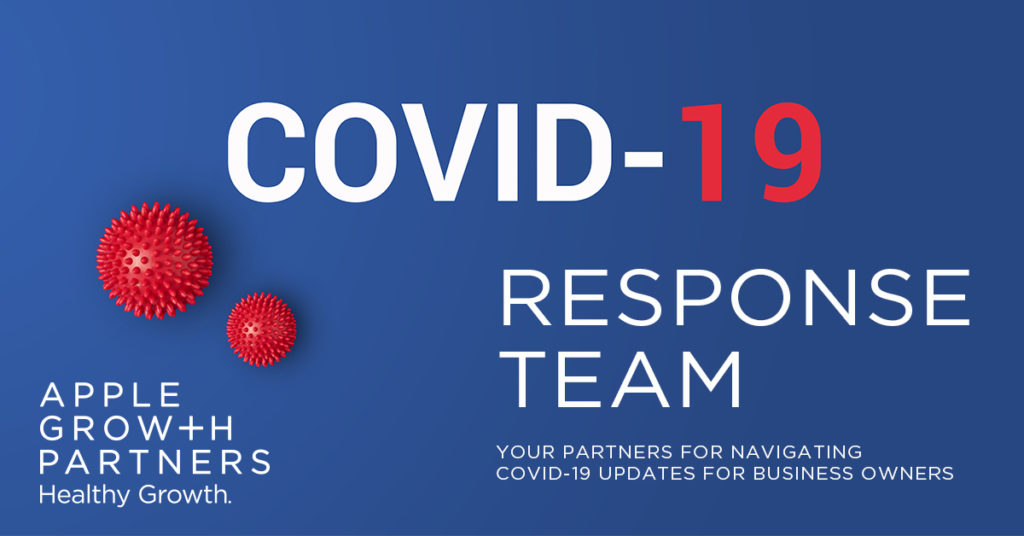
Thursday, May 14, 2020
By A’Shira Nelson, CPA | COVID-19 Response Team
Individuals affected by the COVID-19 pandemic are now eligible to take tax-favored distributions from their IRA(s). Normally, distributions would be included in the taxpayer’s taxable income, and it may be subject to a 10% additional tax if the taxpayer is under age 59 ½.
IRA owners impacted by COVID-19 can withdraw up to $100,000 from their IRA(s) and recontribute the amount(s) at any time up to three years later with no federal income tax consequences. There are no income limits or no restrictions on how you can use the distribution during the three-year recontribution period.
Distributions can come from one or several IRAs. The three-year recontribution period for each distribution begins on the day after you receive it. Individuals can make recontributions in a lump sum or make multiple recontributions. IRA owners can recontribute to one or several IRAs, and it does not have to be the same account(s) in which the original distribution was received.
As long as individuals recontribute the entire distribution amount within the three-year window, the transactions are treated as tax-free IRA rollovers. If the recipient under age 59 1/2, the 10 percent penalty tax that usually applies to early IRA withdrawals does not apply.
Do I Qualify?
A COVID-19 related distribution is a distribution of up to $100,000 from an eligible retirement plan, including an IRA, that is made on or after January 2, 2020, and before December 31, 2020, to an individual:
- Who is diagnosed with COVID-19 by a test approved by the Centers for Disease Control (CDC) and Prevention; or
- Whose spouse or dependent (generally a qualifying child or relative who receives more than half of his or her support) is diagnosed with COVID-19 by such a test; or
- Who experiences adverse financial consequences as a result of being quarantined, furloughed, laid off, or forced to reduce work hours due to COVID-19; or
- Who is unable to work because of a lack of child care due to COVID-19 and experiences adverse financial consequences as a result; or
- Who owns or operates a business that has closed or had operating hours reduced due to COVID-19, and who has experienced adverse financial consequences as a result; or
- Who has experienced adverse financial consequences due to other COVID-19-related factors to be specified in future IRS guidance.
What If I Don’t Recontribute My Distribution Within the Three-Year Window?
Individuals that do not recontribute can choose to spread the taxable amount equally over three years, starting with 2020. Individuals will owe income tax on the distribution amount but will not have to pay the 10 percent early withdrawal penalty tax if under age 59 1/2.
Does the One-IRA-Rollover-Per-Year Limitation Prevent Me from COVID-19 Related Distributions?
No, when individuals recontribute distributions within the three-year window, it is deemed to be done via a direct trustee-to-trustee transfer that is exempt from the one-IRA-rollover-per-year rule.
Can I Take a Distribution from My Company’s Tax-Favored Retirement Plan?
Yes, if the company allows it. The tax rules are similar to those that apply to distributions taken from IRAs.
Retirement Account Required Minimum Distribution Rules are Suspended for 2020
Normally, after reaching the “magic age,” individuals must start taking annual required minimum distributions (RMDs) from traditional IRAs (including SEP-IRA and SIMPLE-IRA accounts) and from tax-favored company retirement plan accounts. The magic age is 70 1/2 if a person attained that age before 2020 or 72 if they attain age 70 1/2 after 2019. Individuals must also pay income tax on the taxable portion of their RMDs.
Thankfully, the CARES Act suspends all RMDs that plan owners would otherwise have to take in 2020. The suspension applies equally to the initial RMD if a person turned 70 1/2 last year and did not take that initial RMD last year (the initial RMD is actually for the calendar year 2019). Before the CARES Act, the deadline for taking that initial RMD was April 1, 2020. Now, thanks to the CARES Act, individuals can put off any and all RMDs that they otherwise would have had to take this year.
For 2021 and beyond, the RMD rules will be applied as if 2020 never happened. In other words, all the RMD deadlines will be pushed back by one year, and any deadlines that otherwise would have applied for 2020 will simply be ignored.
Apple Growth Partners’ published material provides general coverage of its subject area and is presented to the reader for educational purposes based on the most current regulatory information available at the time it was written. All communications, whether written or oral should be reaffirmed prior to the submission of any application. All information in this published material and on our website is provided in good faith; however, we make no representation or warranty of any kind, express or implied, regarding the accuracy, adequacy, validity, reliability, availability, compliance with any law (federal, state or local) or professional standard or completeness of any information. We assume no responsibility to any recipient of this material to correct or update its contents for any reason, including changes in any law or professional standard. It is not intended to be audit, tax, accounting, advisory, consulting or investment advice. The information in this article is also not a substitute for legal advice and may not be suitable in a particular situation. Consult your attorney for legal advice.
Our articles, other published materials and website occasionally contain links to other web pages. Links to organizations and government agencies are provided as a convenience to our readers. The firm does not endorse and is not responsible for any third-party content that may be accessed from its website and does not recommend or endorse the use of any third-party’s services. The links are to be accessed at the user’s own risk, and the authors of this website make no representations or warranties about the content of these links.

